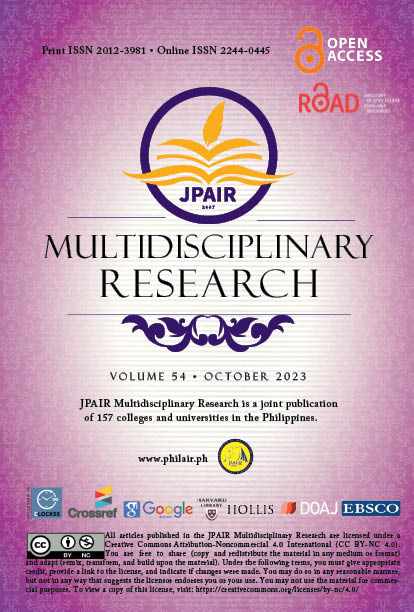Assessment of Philippine Integrated Management of Acute Malnutrition (PIMAM) Program Implementation and Challenges in Maguindanao Hospitals, Philippines
DOI:
https://doi.org/10.7719/jpair.v54i1.866Keywords:
Health governance , well-being , malnutrition , descriptive-evaluative , PhilippinesAbstract
This study aimed to evaluate the implementation of the Philippine Integrated Management of Acute Malnutrition (PIMAM) Program in Maguindanao Provincial Hospital (MPH), Dinaig Municipal Hospital (DMH), and South Upi Municipal Hospital (SUMH), Philippines. Employing a descriptive-evaluative design, data were gathered from 107 respondents comprising top management and hospital staff, selected via purposive sampling. A survey questionnaire was utilized as the primary data collection tool, supplemented by secondary data obtained from hospitals' PIMAM-ITP coordinators regarding the status of patients upon discharge from the Inpatient Therapeutic Program (ITP). Data were analyzed using mean and percentage. Results indicated high levels of implementation of PIMAM-ITP across the hospitals concerning guidelines, facilities, materials, screening, treatment, and discharge procedures. Notably, 74% of discharged patients from ITP hospitals were classified as "successfully treated," with the remaining categorized as defaulter (16%), deceased (8%), medically transferred (2%), or non-respondent (0%). The program demonstrated effectiveness in systematically addressing acute malnutrition. However, challenges persisted, particularly concerning caregiver compliance and funding allocation for training on the National Guidelines for the Management of Severe Acute Malnutrition among personnel involved in program implementation.
Downloads
References
Arifin, S. R. M. (2018). Ethical considerations in qualitative study. International Journal of Care Scholars, 1(2), 30–33.
Downloads
Published
Issue
Section
License
Copyright (c) 2023 Saed E. Abdulrahman, Saidamin P. Bagolong

This work is licensed under a Creative Commons Attribution-NonCommercial 4.0 International License.
Open Access. This article published by JPAIR Multidisciplinary Research is licensed under a Creative Commons Attribution-Noncommercial 4.0 International (CC BY-NC 4.0). You are free to share (copy and redistribute the material in any medium or format) and adapt (remix, transform, and build upon the material). Under the following terms, you must give appropriate credit, provide a link to the license, and indicate if changes were made. You may do so in any reasonable manner, but not in any way that suggests the licensor endorses you or your use. You may not use the material for commercial purposes.




















